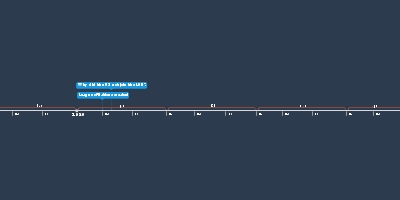18 Sept 1931 Jahr - Manchurian Crisis
Beschreibung:
Background info:- In 1905, Russia and Japan fought over trading rights in the Pacific. Japan defeated Russia and took control over a port called Port Arthur which belonged to Russia for 25 years but originally belonged to China. Japan renamed Port Arthur to the "Kwantung base". With this act, the Japanese military now believed it was the most powerful military in the Pacific, which then caused them to become VERY angry at the signing of the Washington Naval Agreement in 1922. The WNA meant that for every 5 ships the US and Britain obtained, Japan could have 3; this was set up to limit tension in the Pacific. This made the Japanese furious not only at the agreement itself but also at the prime minister for signing the agreement in the first place.
The Wall Street Crash followed in 1929 and affected Japan greatly due to the lack of trade in rice and silk, this caused a lot of poverty and economic depression. This made the Japanese people angry.
In September 1931, some Japanese soldiers in the Kwantung base blew up the South Manchurian railway (a railway used between the Chinese and the Japanese for trading goods) just outside Mukden (this is also known as the Mukden incident). The Japanese army blamed China and claimed it needed self-defense as a cause of it. In return, the Japanese used this to their advantage and took full military control of Manchuria, Manchuria was later renamed "Manchukuo" and a puppet government was established that was under Japanese military control. The Japanese governemtn wasn't happy with the actions taken, but the public supported the military more.
China asked the LON to help The League could have imposed economic sanctions, but Japan’s main trading partner was America, which wasn’t in the League. Because of the depression, America refused to stop trading with Japan. League members didn’t want to damage their own trade if Japan’s trade would carry on as normal. The LON could have sent peacekeeping soldiers (military sanctions) but the LON didn’t have its own army. Britain and France were trying to save money and didn’t want to pay for their own soldiers to solve a problem in distant China. France especially did not want to send troops, because this would weaken its army and leave it vulnerable to attack from Germany. Moreover, since Japan claimed it was only defending itself against Chinese aggression, the League felt nothing was needed. So, instead, the League began writing a report.
However, the report took a whole year to complete, and throughout that year, Japan grew stronger (the army even assassinated the Japanese prime minister, making Japan a military dictatorship). When the report was published, the report clearly stated that Japan had acted aggressively and was to return Manchuria to China. However, with Japan's growth, japan did not even care about the report and instead announced that it intended to invade more of China. Along with that, Japan ended up leaving the LON and did as it said it was, and invaded further inland in China.
In the end, this was a huge failure from the LON. Leaders were self-centered, the economic crisis took a huge toll on every nation, and the LON ended up losing a member in the end.
Zugefügt zum Band der Zeit:
Datum:
18 Sept 1931 Jahr
Jetzt
~ 94 years ago
